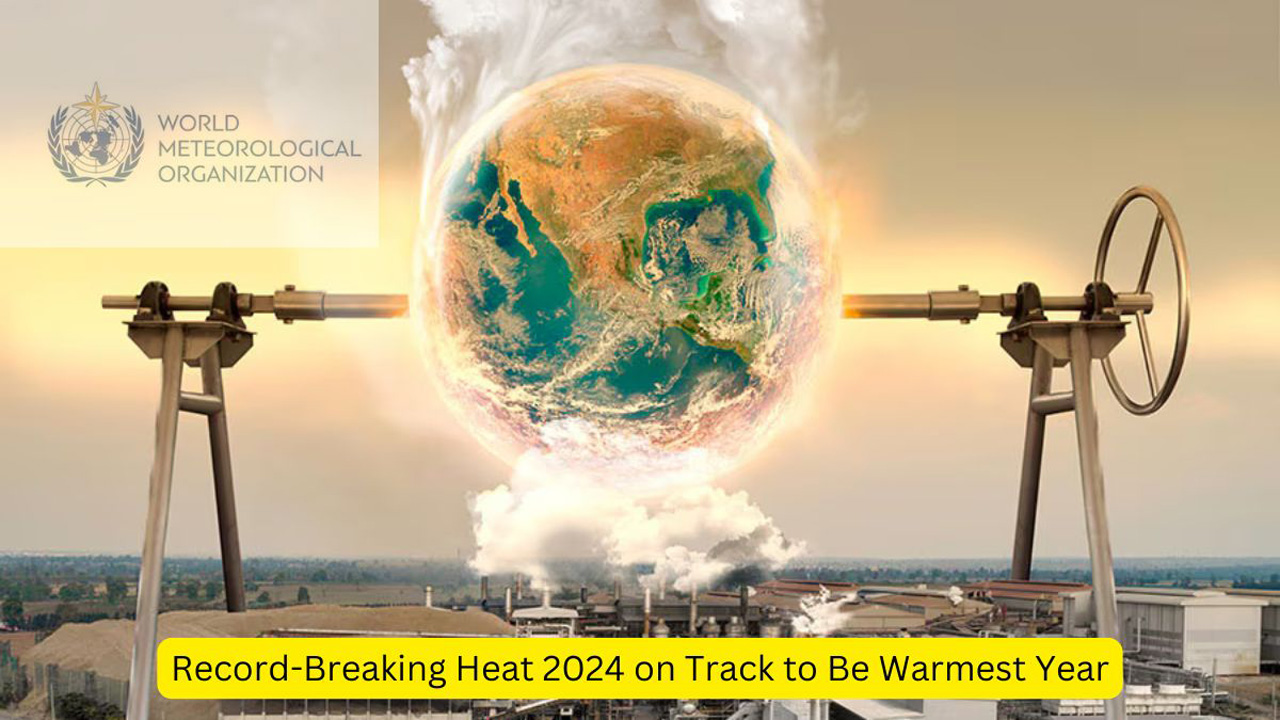Now Reading: Earth Shatters Heat Records: 2024 Officially Hottest Year Ever, Breaching Critical Climate Thresholds
-
01
Earth Shatters Heat Records: 2024 Officially Hottest Year Ever, Breaching Critical Climate Thresholds
Earth Shatters Heat Records: 2024 Officially Hottest Year Ever, Breaching Critical Climate Thresholds

2024 has etched its name in history, not for triumphs or milestones, but as the year Earth experienced its most intense heat ever recorded. This grim confirmation comes from a consensus of leading climate agencies worldwide, including the European Commission’s Copernicus Climate Service, the United Kingdom‘s Met Office, and Japan’s Meteorological Agency. Their data paints a stark picture: global average temperatures in 2024 have not only surpassed the previous record set in 2023 but have done so by a significant margin, pushing the planet past critical climate thresholds.
The Numbers Don’t Lie
The data is unequivocal. The European team at Copernicus calculated a staggering 1.6 degrees Celsius (2.89 degrees Fahrenheit) of warming above pre-industrial levels (1850-1900). Japan’s analysis found 1.57 degrees Celsius (2.83 degrees Fahrenheit) of warming, while the UK Met Office reported 1.53 degrees Celsius (2.75 degrees Fahrenheit). While slight variations exist due to different data analysis methods, the overarching conclusion remains the same: 2024 was unequivocally the hottest year in recorded history.
This surge in temperatures has profound implications. It signifies that the world has temporarily breached the long-term warming limit of 1.5 degrees Celsius set by the 2015 Paris Agreement. This international accord aims to limit global warming to well below 2 degrees Celsius, preferably to 1.5 degrees Celsius, compared to pre-industrial levels. While temporarily exceeding this threshold does not constitute a permanent breach, it serves as a dire warning of how close we are to a future where such exceedances become the norm.
A Cascade of Consequences
The record-breaking heat of 2024 has fueled a cascade of extreme weather events across the globe. From devastating wildfires that ravaged communities to unprecedented heatwaves that claimed lives and strained infrastructure, the fingerprints of climate change are undeniable.
- Wildfires: Across continents, wildfires have raged with unprecedented intensity. In North America, vast swathes of forests have been consumed by flames, while in Europe, wildfires forced mass evacuations and caused significant damage to property and ecosystems.
- Heatwaves: Relentless heatwaves have gripped many regions, pushing temperatures to dangerous levels. In Asia, record-breaking temperatures led to widespread heatstroke cases and placed immense strain on power grids. In Europe, cities experienced prolonged periods of extreme heat, disrupting daily life and posing serious health risks, particularly to vulnerable populations like the elderly and those with chronic illnesses.
- Flooding: In other parts of the world, extreme rainfall has led to devastating floods. In some regions, entire communities have been submerged, causing displacement, economic losses, and tragic loss of life.
The Culprit: Greenhouse Gas Emissions
The overwhelming scientific consensus points to human activities, particularly the burning of fossil fuels, as the primary driver of this alarming warming trend. The accumulation of greenhouse gases like carbon dioxide and methane in the atmosphere traps heat, leading to a steady increase in global temperatures.
“The primary reason for these record temperatures is the accumulation of greenhouse gases in the atmosphere from the burning of coal, oil, and gas,” explains Samantha Burgess, strategic climate lead at Copernicus. “As greenhouse gases continue to accumulate in the atmosphere, temperatures continue to increase, including in the ocean, sea levels continue to rise, and glaciers and ice sheets continue to melt.”
A Call to Action
The alarming climate records of 2024 serve as a stark reminder of the urgent need for action. The world must accelerate its efforts to reduce greenhouse gas emissions and transition to a sustainable, low-carbon economy. This requires a concerted global effort, with governments, businesses, and individuals all playing their part.
- Governments: Governments must implement ambitious policies to reduce emissions, such as investing in renewable energy sources, phasing out fossil fuels, and promoting energy efficiency. They must also strengthen international cooperation to address climate change collectively.
- Businesses: Businesses must adopt sustainable practices, reduce their carbon footprint, and invest in clean technologies. They must also be transparent about their environmental impact and take responsibility for their contribution to climate change.
- Individuals: Individuals can make a difference by adopting more sustainable lifestyles, such as reducing their energy consumption, using public transport or cycling, and making conscious consumer choices. They can also advocate for climate action and support policies that promote a sustainable future.
A Critical Juncture
The year 2024 marks a critical juncture in the fight against climate change. The record-breaking heat and the associated extreme weather events underscore the urgent need for action. The world must heed the warnings and take decisive steps to avert a future of escalating climate impacts. The time for complacency is over. The future of our planet depends on the choices we make today.










